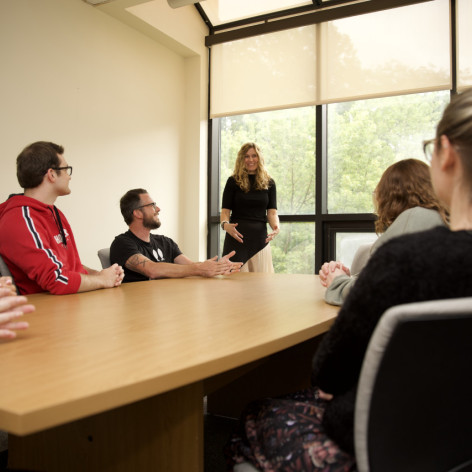Cook to join graduate counseling faculty
FOR RELEASE: Tuesday, March 30, 2010
Huntington, Ind.-Beginning in June, Dr. Michael Cook will transition into his role as associate professor for Huntington University's graduate counseling program. Cook currently serves as the director of the Huntington's graduate ministry program which will be phased out at the end of August. Prior to coming to Huntington, Cook served as the chair of the Christian ministries department at Taylor University Fort Wayne where he worked for 12 years. He developed the Bachelor of Science degree in counseling program at TUFW and a number of new courses. He also developed the spiritual formation initiative at TUFW. Before TUFW, Cook taught at New Orleans Baptist Theological Seminary.
Cook is a licensed marriage and family therapist and internationally board certified professional Christian counselor. He served as the counseling pastor at First Missionary Church in Fort Wayne for four years and has worked in other churches and counseling centers as a clinic director, staff counselor, research consultant, youth pastor and associate pastor.
Cook has published refereed articles and made refereed presentations on a variety of topics, including teaching ethics and critical thinking, engaging students, facilitating learning through developmental clubs, and understanding the effects of counselors' moral dogmatism and counseling attitudes.
"Mike brings a wealth of theological and clinical training and experience to the program," said Dr. Jerry Davis, director of the graduate counseling program. "In addition to teaching some core courses, Mike will head up our nine credit hours in spiritual formation and direction. We are excited to have him on board."
Professor Scott Makin has taught for the counseling program in the past and is now being brought in as a more active member of the faculty. Makin serves as the director of the Wabash Friends Counseling Center. Davis said Makin will co-teach some of the mental health classes with him.
"Scott brings a solid psychodynamic approach with a particular emphasis on emotional attunement and containment," Davis said. "This theoretical approach will better prepare students to work with the thoughts, feelings and behaviors of the clients they serve."



